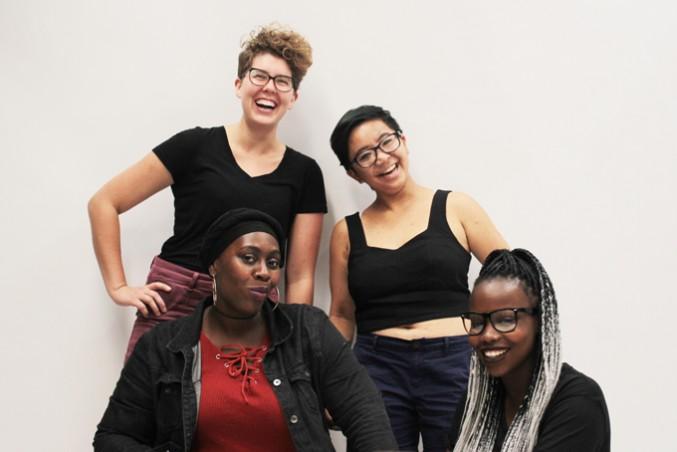By Nicole Schmidt
For most of my childhood, I was the awkward looking kid in class photos. I had a mop of ratty hair that was too thick to brush and I was the heaviest girl in my grade.
I hated my body and I hated myself even more. When I was 10, I stopped eating.
Food made me feel guilty. I was convinced that it would destroy my body—like poison. Every time I stood in front of a mirror I’d pinch my thighs or my arms, wishing I could cut off the extra fat with a knife. I spent countless hours sitting on the bathroom floor in the dark, letting the anger, the self-pity and the uncontainable sadness I felt hit me like a punch to the stomach.
Even after my sixth-grade self lost more than 20 pounds, I wasn’t happy. Insecurities trailed behind me throughout my teens and into my adult life. From time to time, they still catch up and knock me to the ground again.
The negativity that accompanies how we see our physical selves isn’t new. We’re warned about unrealistic ideals surrounding thinness and muscularity, about airbrushing and about the dangers of eating disorders. We’re told to ignore it, to accept how we look and to be happy with ourselves. But it’s not that easy.
The Public Health Agency of Canada estimates that about 35 per cent of young people with a healthy weight feel like their body is the wrong size, while other studies have cited numbers as high as 75 per cent. Sally Willis-Stewart, director of the Nutritional Education Center at UBC, told the CBC that post-secondary students are some of the most prone to eating disorders and image problems.
The general consensus, at least among everyone I’ve ever talked to, is that there’s always going to be a desire for self-improvement. Maybe that stems from societal pressures, or maybe it’s because everyone else seems to hate something about themselves, too. Tall people want to be shorter, short people want to be taller; women with big hips want to be smaller and women without wish they had more curves.
Being appreciative of what we have is so much more difficult when we’re only focused on what we want. We’re never content and we constantly belittle ourselves, but campaigns like #RyeBodyPosi, as you’ll read about in our communities section, can start to push us in the right direction.
A hashtag can’t undo years of self-inflicted harm, but it can give us a reason to start a conversation. Perhaps more importantly, it’s a reason to support each other.
I can’t say I’ve ever been satisfied with my appearance and I’m not sure I ever will be. But I’ve learned to love myself more than I used to, because my body doesn’t define me.












Leave a Reply